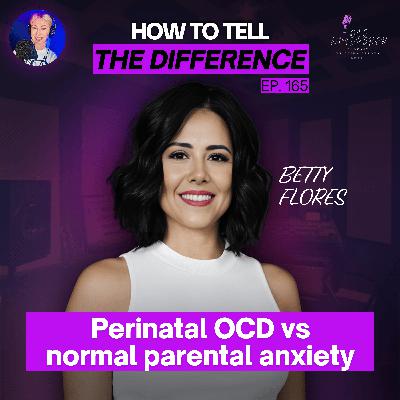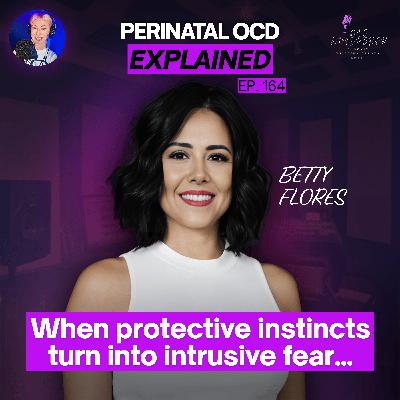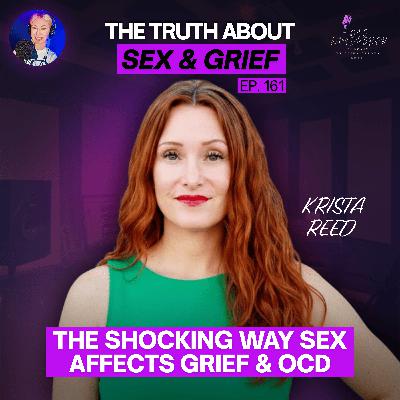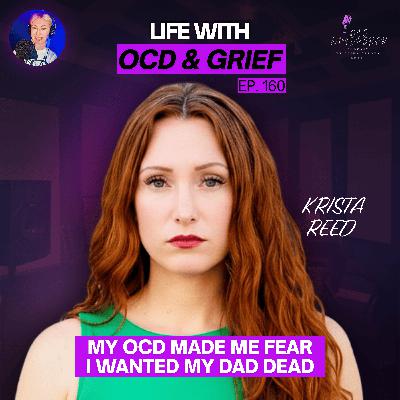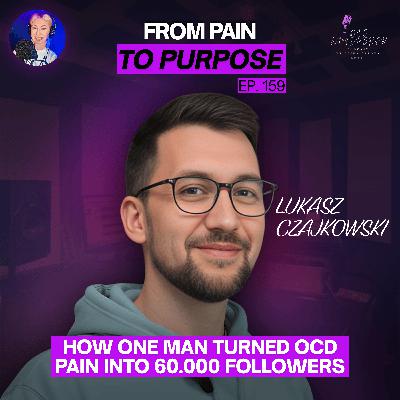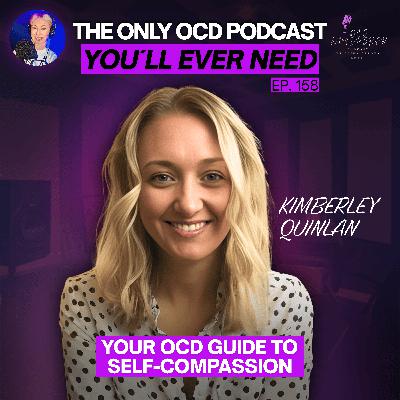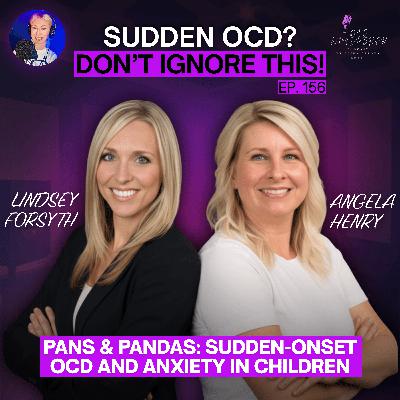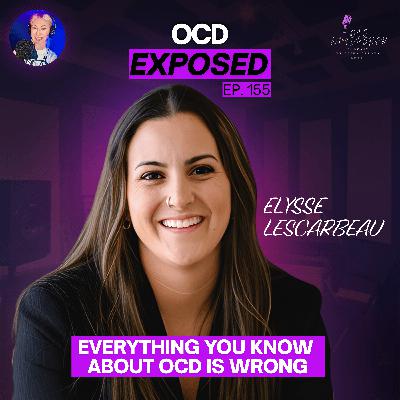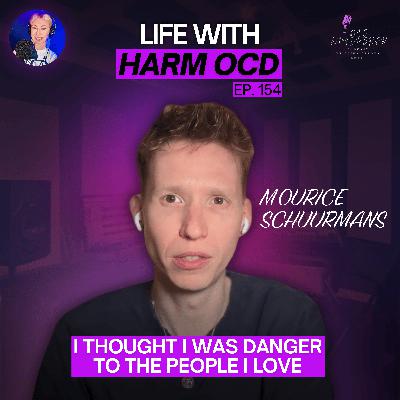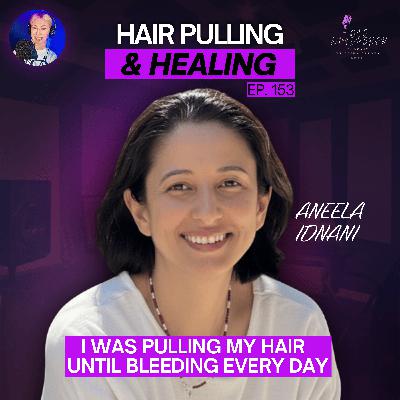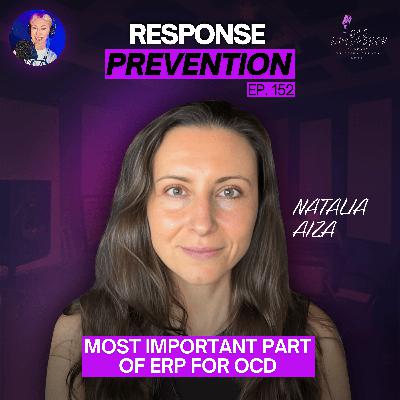🧠 Can grief and OCD completely change your sex drive, intimacy, and connection with your partner?
In this powerful episode of The OCD Whisperer Podcast, Kristina Orlova speaks with Krista Reed, licensed therapist and trauma specialist, about how grief, trauma, cortisol, and the nervous system directly affect sexuality, desire, and emotional intimacy in people with OCD.
❤️This episode explores:
• Why grief and OCD can shut down desire — or make it feel overwhelming
• How cortisol and chronic stress disrupt arousal and connection
• The role of sex, intimacy, and orgasm in nervous system regulation
• Why shame around desire is so common in OCD
• How trauma stored in the body blocks emotional and sexual safety
This is one of the most honest conversations we’ve had about OCD, grief, and sex — and how to begin healing at the nervous system level.
📲 About Krista Reed (guest):
• OCD/BDD/BFRB Specialist in KS
• Instagram: https://www.instagram.com/kristaruthreed/?hl=en
• Breathe Between Battles: A Daily Reflection Journal: https://www.amazon.com/dp/B0FSL41QCR?ref=cm_sw_r_ffobk_cp_ud_dp_SKM3AA2QVVQ5B5MHYS9Q&ref_=cm_sw_r_ffobk_cp_ud_dp_SKM3AA2QVVQ5B5MHYS9Q&social_share=cm_sw_r_ffobk_cp_ud_dp_SKM3AA2QVVQ5B5MHYS9Q&bestFormat=true
✂️ TIMESTAMPS:
[00:00] – Why Grief and OCD Can Completely Disrupt Desire
[00:42] – Lowering Cortisol: The Foundation of Emotional and Sexual Regulation
[01:53] – What Chronic Stress Does to Libido and Arousal
[02:39] – Journaling the Thoughts You’re Too Ashamed to Say Out Loud
[03:28] – When Your Mind Is Loud but Your Body Feels Numb
[05:02] – Creativity, Fantasy, and Sexual Energy as Emotional Escape
[06:08] – Discipline vs Avoidance in Mental and Sexual Health
[07:41] – Showing Up for Your Body Even When You Don’t Want To
[08:36] – Mood Swings, Hormones, and Emotional Intimacy
[09:24] – Burnout, Attraction, and Feeling Disconnected From Pleasure
[10:34] – The Body’s Natural Drive for Physical Release
[11:28] – Sex as Stress Relief: When It Helps and When It Becomes Escape
[11:57] – The Nervous System, Orgasms, and Temporary Calm
[12:32] – Shame, Desire, and Wanting Comfort at the Same Time
[13:20] – Using Sex for Safety After Emotional Loss
[14:43] – Physical Connection as a Shortcut to Feeling Alive
[15:36] – When Pleasure Becomes Regulation, Not Destruction
[16:12] – Emotional Regulation Through Touch, Not Self-Punishment
[17:37] – There Is No “Wrong” Way to Feel Arousal During Grief
[18:49] – Alcohol, Hookups, and Numbing Emotional Pain
[19:56] – Dopamine, Sex, and the Trap of Chasing Relief
[20:44] – Cultural Shame Around Grief, Desire, and Coping
[22:08] – When Sex Feels Like Healing but Turns Into Avoidance
[24:12] – The Line Between Connection and Self-Destruction
[26:12] – OCD’s Role in Sexual Intrusive Thoughts and Guilt
[26:54] – Letting Arousal Exist Without Turning It Into Compulsion
[27:40] – Harm Reduction in Sex, Dating, and Emotional Coping
[29:16] – Why Control Feels Safer Than Surrender
[30:33] – Writing About Sex, Loss, and Shame Without Censoring Yourself
[31:43] – What Sexual Self-Compassion Actually Means
[32:56] – Forgiveness, Healing, and Reclaiming Desire
[33:45] – Boundaries in Intimacy and Emotional Safety
[34:38] – You’re Not Broken for Wanting Relief Through Your Body
[35:42] – Final Reflections on Grief, OCD, Sex, and the Nervous System
✅ Free Resources & Links
🎁 Free OCD Survival Kit & Classes → www.shorturl.at/KcTxM
📖 OCD CBT Journal → www.shorturl.at/7pUxB
🌐 Website → www.korresults.com/
✍️ OCD Academy→ www.ocdacademy.thinkific.com/
📲 Stay Connected
Facebook: www.facebook.com/korresults
Instagram: www.instagram.com/ocdwhisperer/
TikTok: www.tiktok.com/@ocdwhisperer
Twitter (X): www.x.com/korresults
Website: www.korresults.com/
📩 Business Inquiries: info@theocdwhisperer.com
✅ About OCD Whisperer
Welcome to OCD Whisperer! Each episode shares tools and insights for OCD recovery, managing intrusive thoughts, ERP therapy, CBT techniques, anxiety relief, and mindfulness practices. Join me for expert interviews and personal insights into overcoming OCD. Subscribe to find support, strategies, and hope for your OCD journey.
⚠️ Disclaimer: Please note while the host is a licensed marriage and family therapist specializing in OCD and anxiety disorders in the state of California, this podcast is for educational purposes only and should not be considered a substitute for therapy.
🔑 SEO Keywords
OCD and sex intimacy and OCD grief and sex drive trauma and desire nervous system and arousal OCD relationships sexual shame and OCD
© OCD Whisperer









